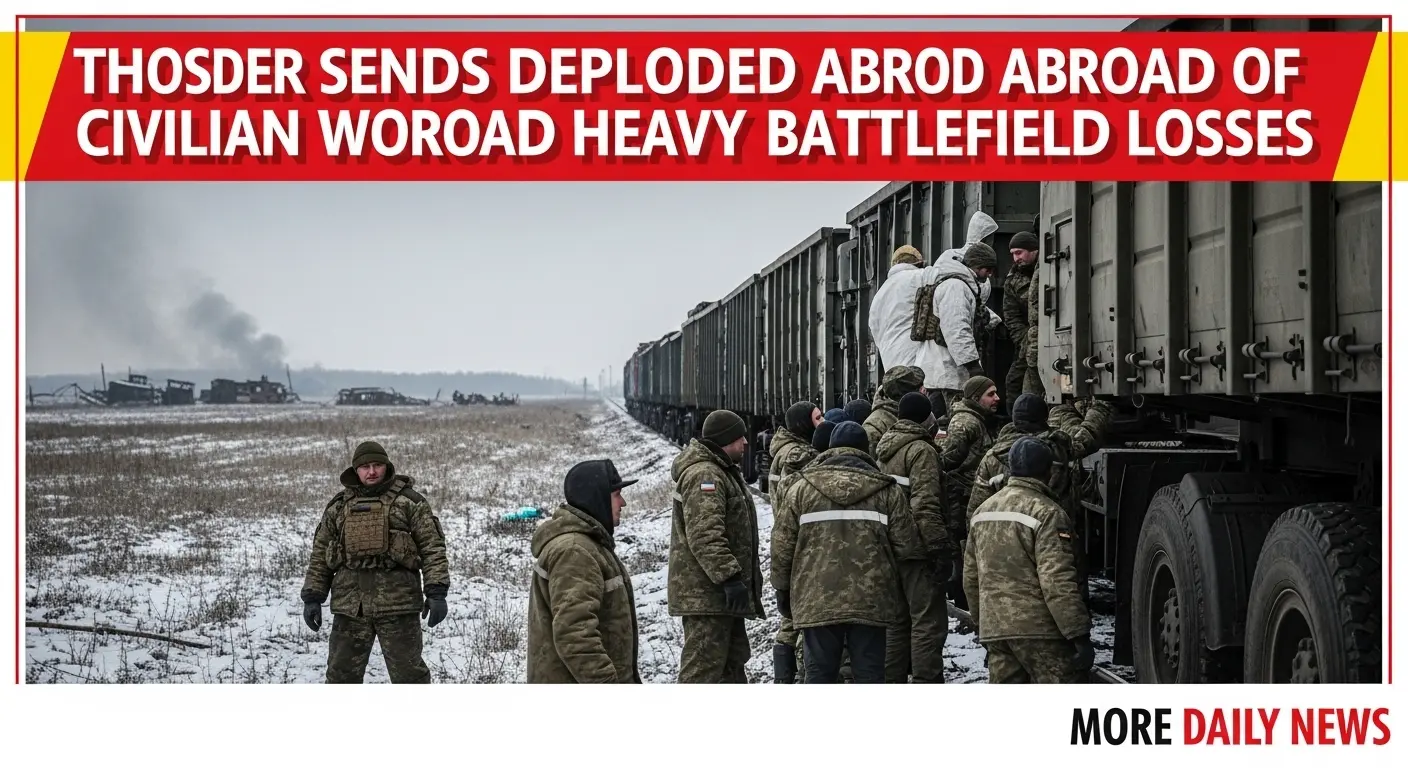Table of Contents
North Korean leader Kim Jong Un is dispatching another 6,000 personnel to Russia’s war-torn Kursk region, according to Russian Security Council Secretary Sergei Shoigu. This new deployment comes after UK intelligence estimates revealed that approximately 6,000 North Korean troops were killed or wounded during previous combat operations in the region :cite[1]:cite[4]. The announcement followed Shoigu’s third meeting with Kim in Pyongyang within three months, signaling rapidly deepening military cooperation between the two sanctioned nations :cite[3]:cite[8]. According to Shoigu, North Korea will deploy 1,000 sappers (combat engineers specializing in explosives and demining) and 5,000 military construction workers to assist Russia’s reconstruction efforts in Kursk. The personnel will focus on clearing mines and rebuilding infrastructure destroyed during Ukraine’s incursion into the region in August 2024 :cite[1]:cite[5]. Shoigu described the deployment as “fraternal assistance” from the Korean people and leader Kim Jong Un to Russia :cite[2]:cite[6]. The deployment timeline remains unspecified, though Shoigu indicated work would begin “in the near future” after demining operations :cite[6]. This marks North Korea’s second major deployment to Kursk, following an initial contingent of 10,000-15,000 troops sent in late 2024 to help Russia recapture territory from Ukrainian forces :cite[5]:cite[7]. The UK Defense Ministry reported on June 15, 2025 that North Korean forces suffered over 6,000 casualties during combat operations in Kursk :cite[1]:cite[4]. This assessment aligns with earlier estimates from Ukrainian officials (3,800-4,000 casualties) and South Korean intelligence (approximately 600 killed and 4,100 wounded) :cite[1]:cite[7]. In recognition of these sacrifices, Moscow and Pyongyang are planning joint memorials honoring North Korean soldiers who died fighting in Kursk. Shoigu stated: “The heads of our states have decided to perpetuate the feat of the soldiers of the Korean People’s Army” :cite[1]:cite[6]. These memorials will be constructed in both Russia and North Korea :cite[7]. The troop deployment represents the latest development in the rapidly strengthening military partnership between Russia and North Korea, formalized through their June 2024 Comprehensive Strategic Partnership Treaty. This agreement includes a mutual defense clause requiring each nation to provide aid if the other is attacked :cite[3]:cite[6]:cite[7]. Beyond troop deployments, North Korea has supplied Russia with significant military hardware for its Ukraine campaign, including up to 9 million rounds of artillery and rocket ammunition and at least 100 ballistic missiles according to multilateral sanctions monitors :cite[5]:cite[7]. A Reuters investigation confirmed millions of North Korean shells reached Russian front lines :cite[6]. In return, Russia provides economic support, cash payments (reportedly $2,000 per deployed soldier), and critical military technology. South Korean intelligence reports indicate Russia has transferred air defense missiles, electronic warfare equipment, drones, and satellite launch technology to Pyongyang :cite[1]:cite[7]. South Korea’s Foreign Ministry expressed “grave concern” and “deep concern over the continuing illegal cooperation between North Korea and Russia,” urging Pyongyang to “stop such actions immediately” :cite[5]:cite[7]. The ministry emphasized this cooperation violates multiple UN Security Council resolutions prohibiting weapons transfers involving North Korea and banning member states from issuing work permits to North Koreans :cite[7]. A U.S. State Department spokesperson stated Russia’s use of North Korean workers and soldiers was “deeply concerning,” noting Pyongyang now relies on “Russia to provide it with desperately needed funds in exchange for labor and soldier for hire schemes” :cite[2]:cite[7]. Japanese Prime Minister Shigeru Ishiba warned the cooperation “threatens to jeopardize global security” :cite[7]. In response to growing military cooperation, South Korea, the U.S., and Japan conducted joint aerial exercises off South Korea’s Jeju Island on June 18 :cite[7]. North Korea’s continued support provides Russia with vital manpower amid its protracted conflict in Ukraine, while offering Pyongyang economic relief and military technological advancement. Analyst Soo Kim noted: “Sending North Koreans to support Russia is a quick and reliable way for Kim Jong Un to make money… Long run, the access to critical military know-how will only strengthen his threat base” :cite[1]. The frequent high-level meetings – Shoigu’s third visit to Pyongyang in three months – underscore the alliance’s strategic importance to both nations :cite[6]:cite[8]. As reconstruction begins in Kursk and memorials are planned for fallen North Korean soldiers, this partnership appears poised to deepen further, with analysts suggesting another Kim-Putin summit may soon occur :cite[7]. Russia announced North Korea will send 6,000 personnel: 1,000 sappers (demining specialists) and 5,000 military construction workers :cite[1]:cite[5]. Analysts cite economic benefits ($2,000 per soldier according to Ukrainian estimates), military technology transfers, and cementing their strategic alliance against Western pressure :cite[1]:cite[7]. UK intelligence estimates over 6,000 killed or wounded. South Korean sources reported approximately 4,700 casualties (600 killed) as of April 2025 :cite[1]:cite[4]:cite[7]. According to sanctions monitors, North Korea shipped up to 9 million artillery shells and 100+ ballistic missiles. A Reuters investigation confirmed shells reached front lines :cite[5]:cite[6]. South Korea, the U.S., and Japan condemned the cooperation as illegal under UN sanctions. They’ve enhanced military exercises in response :cite[5]:cite[7].
Deployment Details

Heavy Casualty Toll
Time Period North Korean Casualties Reporting Source Late 2024-Early 2025 3,800-4,000 killed/wounded Ukrainian officials :cite[1] April 2025 ~4,700 casualties (600 killed) South Korean lawmaker :cite[2]:cite[7] June 2025 >6,000 killed/wounded UK Defense Ministry :cite[1]:cite[4] Deepening Military Alliance
International Reactions

Strategic Implications
Frequently Asked Questions
How many North Korean workers are being sent to Kursk?
Why is North Korea sending workers to Russia?
How many North Korean casualties occurred in Kursk?
What else has North Korea supplied to Russia?
How has the international community responded?

